Yurie Collins Navigates Tokyo’s Comedy Scene with Wit and Creativity
Stand-Up, Film Directing and the Art of Connecting Through Humor
Balancing life between New York and Japan, Yurie Collins reflects on the challenges of being a female comedian in a predominantly male scene.
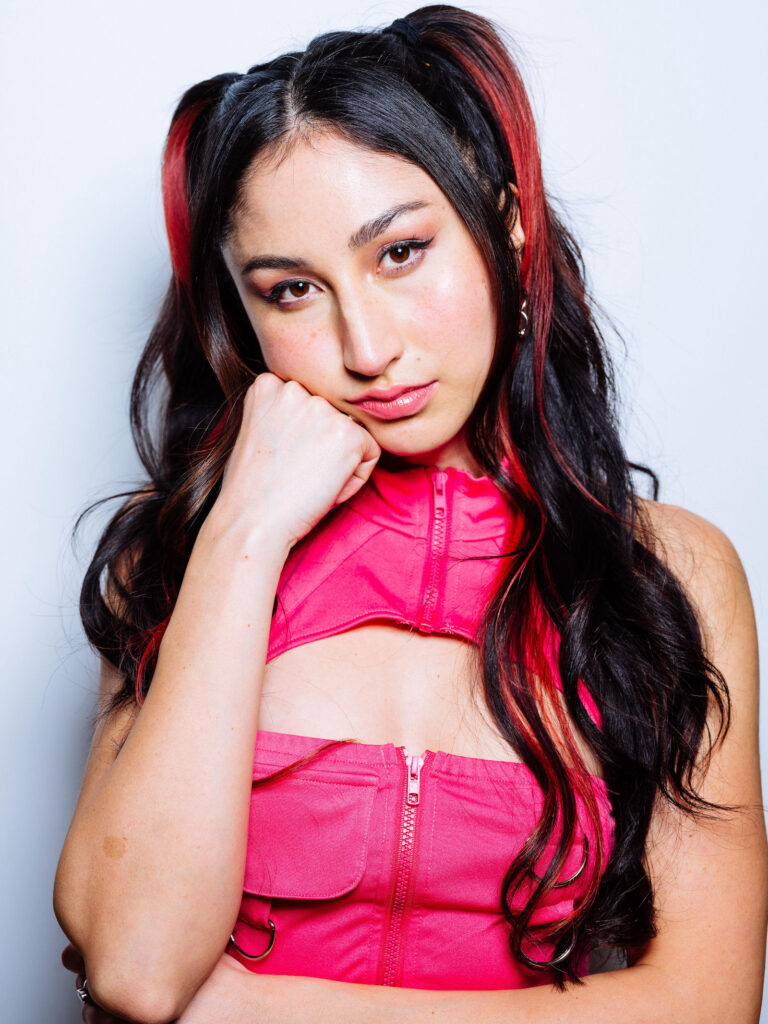 © Photo by Yurie Collins
© Photo by Yurie CollinsYurie Collins, with a blend of Japanese and American heritage, grew up in a small Japanese town in Wakayama. She pursued theater and literature at college in Boston, later immersing herself in acting in New York City. Returning to Japan during the pandemic, Yurie delves into stand-up comedy, connecting with audiences from around the world.
What inspired you to pursue a career in comedy, and how did you end up in Tokyo?
I was inspired to try comedy when a fellow female comedian in Tokyo reached out after seeing my “Bring Nothing to the Table” video on social media. She suggested that Tokyo’s comedy scene needed more funny women. I accepted the challenge despite the male-dominated environment, viewing it as an opportunity to connect with diverse audiences.
Have you faced any unique experiences or challenges as a female comedian in the Tokyo comedy scene?
It can be tough when the audience is mostly male because there’s sometimes a perception that a funny woman is threatening to men. This dynamic can make performances challenging, but I don’t mind being a little threatening. I appreciate the challenge of making everyone laugh, even if not everyone finds me funny.
How has living in Tokyo influenced your comedic style and material?
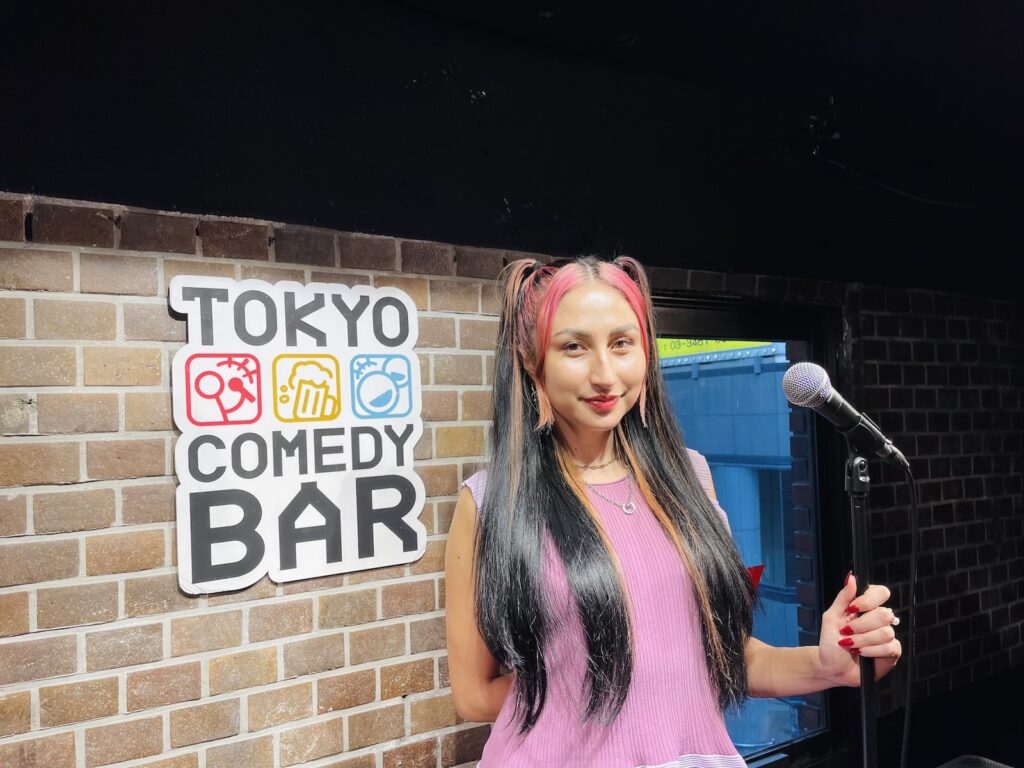 © Photo by Shelley Smith
© Photo by Shelley SmithLiving in Tokyo has a significant impact on my comedic style. I draw inspiration from personal experiences, discussing what I find funny and relatable. I often touch on universal Tokyo experiences, like navigating trains or pedestrian crossings, creating a shared understanding in a diverse audience. Discussing topics like dating in Japan compared to New York also adds a personal touch to my shows and resonates with the international audience.
Comedy often reflects cultural nuances. How do you navigate cultural differences and connect with audiences in Tokyo?
Performing in Tokyo does require a nuanced approach. In New York, I can generally predict the audience’s progressive stance, but in Tokyo, it’s more diverse. I strive to make people laugh but I have no interest in pandering to any particular belief. I think comedy should sting a little.
I’ve come to realize that being likable and authentic transcends linguistic differences.
Performing for a Japanese audience, in particular, poses unique challenges. The audience might initially interpret jokes as serious information, requiring me to be clearer in distinguishing humor. Despite the language barrier, however, I’ve come to realize that being likable and authentic transcends linguistic differences. Whether in English or Japanese, connecting with the audience hinges on relatability and genuine self-expression. It’s about making people comfortable and rooting for you, even when tackling unconventional or uncomfortable topics.
How do you balance the demands of your comedy career with everyday life in the city?
Juggling my comedy career and daily life in Tokyo is like navigating a whirlwind. Despite being disorganized, I manage a stream of tasks. Part of my income comes from online content creation, both personal and client-based. I also juggle various auditions and meetings while I edit content before I perform comedy live at night. It’s a hectic balancing act, demanding organizational skills I sometimes lack. I strive for discipline, work out daily and attempt to maintain a healthy diet—though it’s admittedly challenging. The demands can be overwhelming, but I appreciate the variety and try to stay disciplined amidst the chaos.
Is there anything else you’re working on right now?
Beyond comedy, I’m immersed in a couple of exciting projects. I’m working on a script for a television series that has been brewing in my mind for ages. In addition, I’ve ventured into filmmaking, completing my first short film last year. Recently, I directed my second short film too. While I’m not acting in the films, gaining directing experience aligns with my three-to-five-year plan. I eventually aim to fully produce and star in my television series.
Could you tell us a bit more about your film directing and what got you involved in that?
I used to be active in activism, particularly with climate justice groups in New York. My short film #SPONSORED is a fictional dystopian thriller, a protest film that revolves around climate change and neoliberalism. Integrating my activism into my art is crucial to me, and I’m gradually finding ways to incorporate it into my material.
Do you incorporate that activist side of you into your comedy as well?
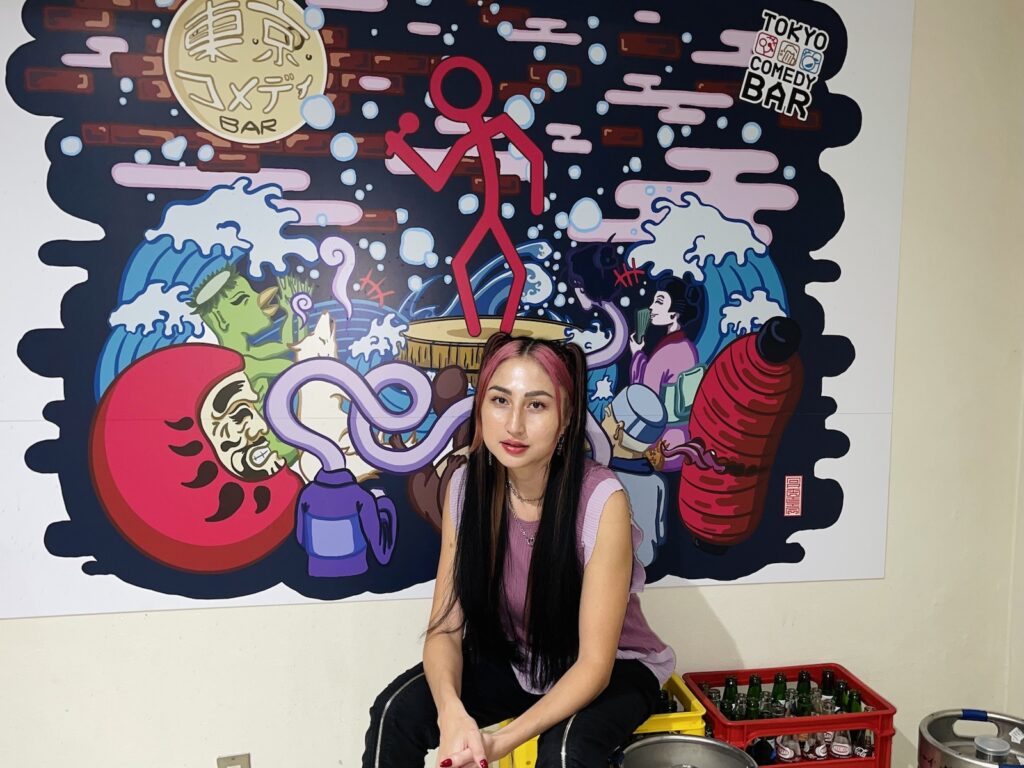 © Photo by Shelley Smith
© Photo by Shelley SmithI believe artists should strive to be “thermostats” rather than “thermometers.” A thermostat controls the climate, influencing and shaping it, while a thermometer merely reflects the existing climate. I see this as a goal for myself in the comedy scene, to actively contribute to its direction rather than merely reacting to it. Influential figures like Jordan Peele, who is masterful in both comedy and filmmaking, inspire me. I also admire George Carlin and Michaela Coel for their impactful work, particularly Coel’s truthful and biting humor in “I May Destroy You” on HBO.
So what would you say your overall artistic style is like?
My style is more grounded and real, focusing on everyday situations and tweaking them for comedic effect. While I enjoy offering an escape through my work, I also aim to provide a strong reminder of reality. Fantasy is appealing, but it always originates from a real place. I aspire to create content that, even if it’s a temporary escape, leaves a lasting impression on how people perceive reality.
What advice would you give to aspiring female comedians looking to make their mark in Tokyo’s comedy scene?
My advice would be a blend of lessons I’m still learning myself. Firstly, learn from others without falling into the comparison trap. Every artist’s journey is unique and focusing too much on others can be a distraction.
If comedy is your calling, dive in, get on stage and accumulate as much stage time as you can.
Specifically for comedy, the fear of not being ready often holds people back. Don’t wait for the perfect set of jokes. Write, yes, but recognize that there’s a lot you can only learn by taking the stage. Embrace the nerves, the uncertainty and just get up there. Whether you shine or stumble, each experience is a step forward. Consider open mics as a learning ground and, most importantly, do it because you want to, not out of obligation. If comedy is your calling, dive in, get on stage and accumulate as much stage time as you can. It’s a journey, and every step counts.
With Tokyo being a dynamic and ever-changing city, how do you see the future of comedy and your role within it here?
In Tokyo, I genuinely hope the comedy scene flourishes further. It surprised me to discover an English stand-up scene here, and since then, it’s already expanded. With the pandemic easing, more people are arriving, drawn to Tokyo’s international vibe. While Japanese comedy, like manzai (a traditional style of comedy in Japan), has its unique style, there’s a growing interest in English comedy. My wish is that more locals discover these shows and join the laughter. As long as we continue performing and strive for excellence, I believe the comedy scene will naturally grow with time.
Do you ever perform in Japanese?
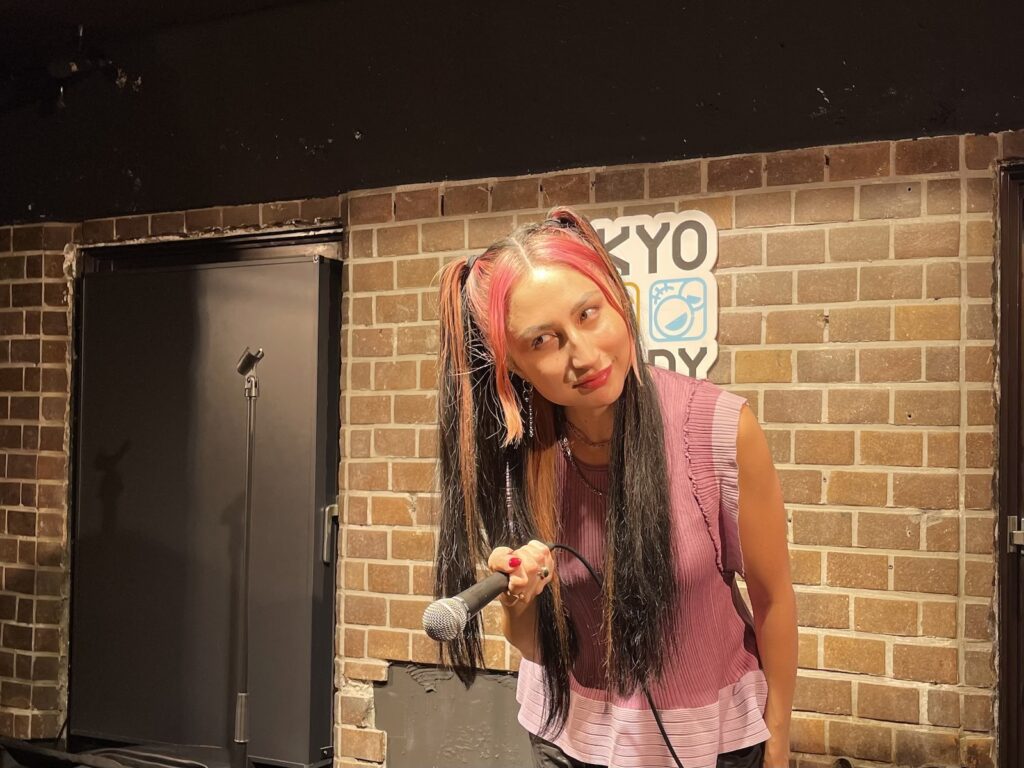 © Photo by Shelley Smith
© Photo by Shelley SmithYes, I come up with content in a way that’s similar to my English material, but I adjust it a bit. In Japanese, I often get inspiration from everyday conversations, like chatting with my nail lady at the salon. We talk about specific things, like shows we watched or experiences I had, and if something funny comes up, I jot it down. It’s a mix of observing daily life and having amusing conversations with people.
You often perform live at Tokyo’s first and only English comedy bar. Could you tell us more about that?
Absolutely! Tokyo Comedy Bar hosts comedy shows every night, usually with regular weeknight performances. However, they often feature themed shows, and one standout is the “No-Bro Comedy Show” held every first Wednesday of the month. It’s a platform for comedians from the queer and female community, providing a welcoming space beyond the typical cis-straight male-dominated comedy scene. It’s an incredibly supportive and warm environment.
the “No-Bro Comedy Show”…It’s a platform for comedians from the queer and female community
Additionally, there are special Hafu Comedy Nights where we share our experiences, particularly about being biracial in Japan. Beyond that, there are recurring shows with unique themes, like “Roles for Initiative” on Sundays. This Dungeons & Dragons-inspired show not only brings laughter but also supports a good cause—proceeds go to Tokyo Lifeline, a mental health hotline for English speakers. Tokyo Comedy Bar is such a vibrant space with diverse themes, and new, exciting shows are constantly popping up!
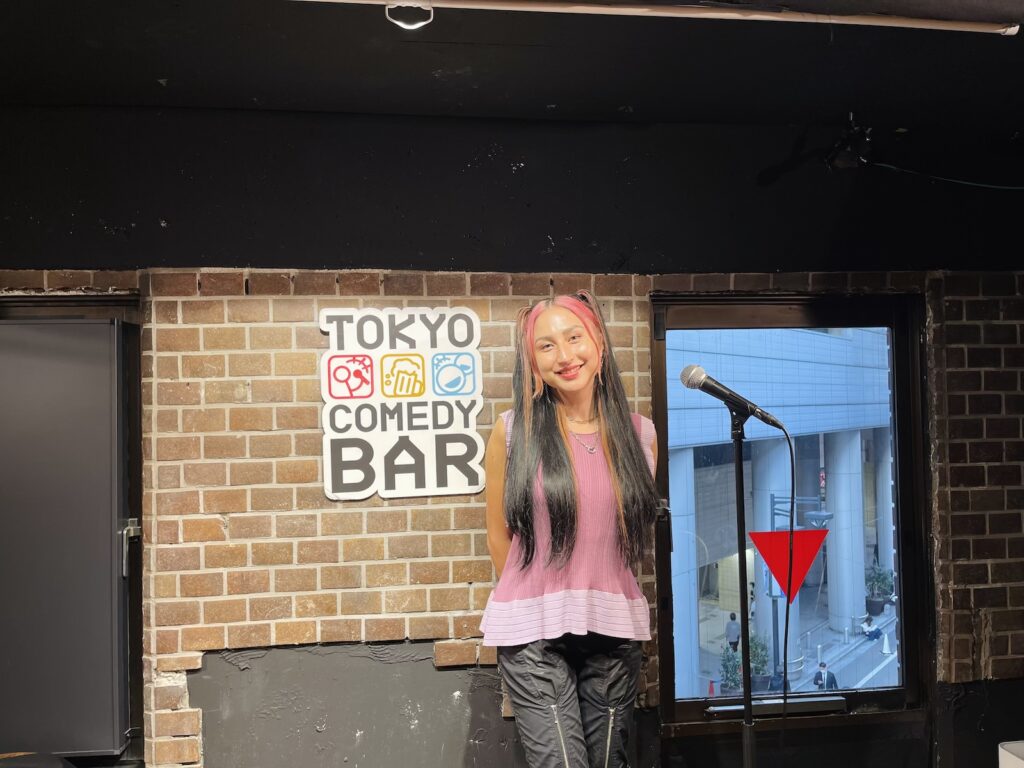 © Photo by Shelley Smith
© Photo by Shelley SmithWatch Yurie perform live over at the Tokyo Comedy Bar in Shibuya or follow her over on TikTok or Instagram for her hilariously relatable content.
For those interested in her short film, you can watch the trailer for #SPONSORED via this Instagram link.
Savvy Spotlight is a monthly feature introducing foreign and Japanese women at the frontline of what’s successful, contributing, cool, unique and interesting in the city. If you have anyone in mind you would like us to interview, leave us a comment below with your recommendations!













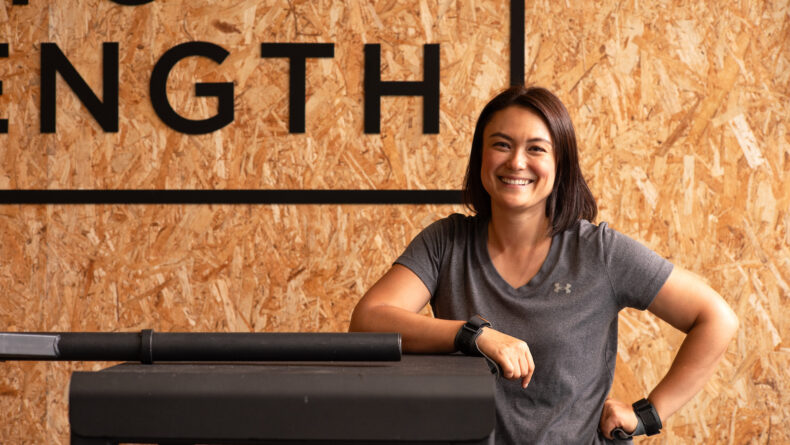
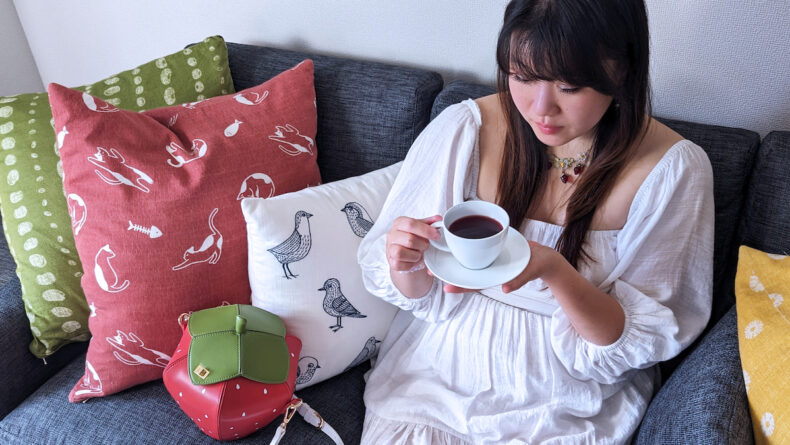
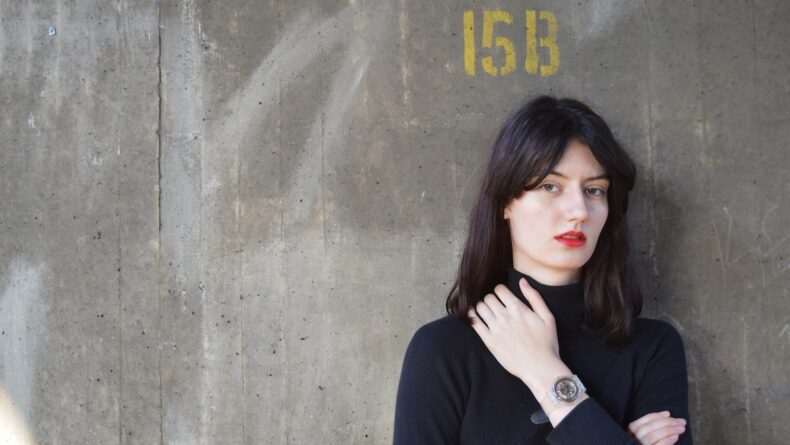
Leave a Reply